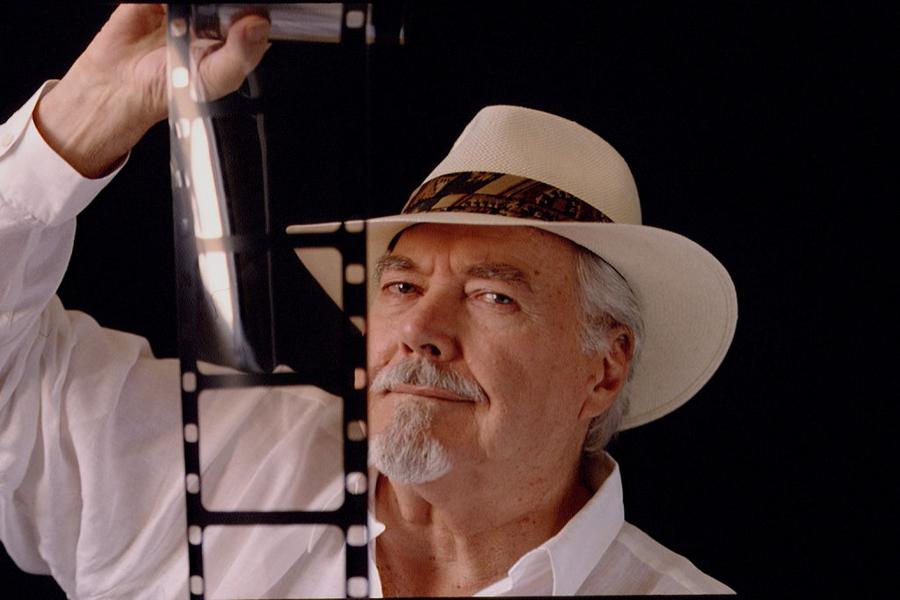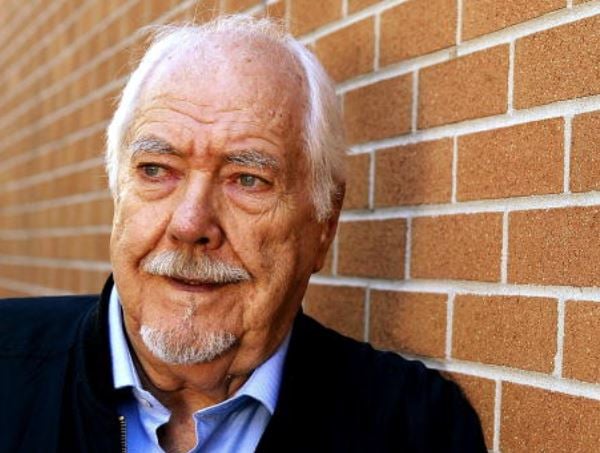Robert Altman at a Glance
- Categories: Celebrities, Celebrities > Directors
- Net Worth: $60 Million
- Birthdate: Feb 20, 1925 - Nov 20, 2006 (81 years old)
- Birthplace: Kansas City
- Gender: Male
- Profession: Film Director, Film Producer, Screenwriter, Writer, Television Director, Television Producer, Actor, Film Editor
- Nationality: United States of America
- Height: 6 ft (1.83 m)
Robert Altman: A Cinematic Legacy and His Impressive Net Worth
Robert Altman, a name synonymous with cinematic innovation, left an indelible mark on Hollywood. His unique directorial style, characterized by ensemble casts, overlapping dialogue, and a mobile camera, reshaped the landscape of American filmmaking. This article delves into the life, career, and remarkable net worth of this groundbreaking director, providing a comprehensive overview of his contributions to the world of cinema.
Early Life and Education
Robert Altman was born on February 20, 1925, in Kansas City, Missouri. His parents were Helen (nee Scott), a Mayflower descendant, and Bernard Altman, a successful insurance salesman. Raised in a devout Catholic household, Altman received his early education at Jesuit schools, including Rockhurst High School. His academic journey continued at Wentworth Military Academy in Lexington, Missouri, from which he graduated in 1943.
Career Beginnings and Television Directing
Following his graduation from military school, Altman served in the US Army Air Forces during World War II. As a co-pilot of a B-24 Liberator with the 307th Bomb Group, he bravely flew over 50 bombing missions in Borneo and the Dutch East Indies. After being discharged in 1947, he moved to California. He co-wrote the story that became the basis for the RKO film noir “Bodyguard.” This initial success encouraged him to pursue a career as a full-time writer in New York City. However, struggling to make ends meet, Altman returned to Kansas City, where he started directing and writing industrial films for the Calvin Company. Simultaneously, he began directing plays at the Resident Theatre of the Jewish Community Center.
In the early 1950s, Altman transitioned to television directing. He began with episodes of the DuMont drama series “Pulse of the City” (1953-1954) and later directed for series like “The Sheriff of Cochise” and “Alfred Hitchcock Presents.” His television work became increasingly prolific, encompassing episodes of shows such as “Whirlybirds,” “The Millionaire,” “The Roaring 20s,” “Bonanza,” “Combat!,” and “Maverick,” among many others. A notable achievement was the 1964 television film “Nightmare in Chicago,” which was an expansion of an episode he directed for the anthology series “Kraft Suspense Theatre.” He would continue directing television films throughout his career, including “2 by South,” “The Laundromat,” and “The Caine Mutiny Court-Martial.” Furthermore, Altman directed the political mockumentary miniseries “Tanner ’88,” for which he won an Emmy Award.

Robert Altman (Photo by Micheline Pelletier/Sygma via Getty Images)
Film Directing: The Golden Era (1957-1979)
Altman made his feature film directorial debut in 1957 with “The Delinquents,” a low-budget teen drama filmed in his hometown of Kansas City. He then took a hiatus from feature films until 1967, when he directed the low-budget science-fiction film “Countdown.” Two years later, he directed “That Cold Day in the Park,” a psychological thriller. His career achieved a critical and commercial breakthrough with the satirical war film “M*A*S*H,” released in 1970. Based on a relatively unknown novel from the Korean War era, the film was a massive success. It won the top prize at the Cannes Film Festival and garnered five Academy Award nominations, including Altman’s first for Best Director. “M*A*S*H” became the third-highest-grossing film of the year and later spawned a popular television series.
Altman directed several other notable films during this period:
- “Brewster McCloud” (1970): A black comedy.
- “McCabe & Mrs. Miller” (1971): A revisionist Western.
- “Images” (1972): A psychological horror film.
- “The Long Goodbye” (1973): A neo-noir film.
- “Thieves Like Us” (1974): A crime film.
- “California Split” (1974): A gambling dramedy.
In 1975, Altman achieved one of his greatest critical successes with the satirical musical dramedy “Nashville,” a large ensemble film featuring numerous interconnected storylines and country and gospel music numbers. Like “M*A*S*H,” the film received five Academy Award nominations, including Best Director. His next film, the 1976 revisionist Western “Buffalo Bill and the Indians, or Sitting Bull’s History Lesson,” won the Golden Bear at the Berlin International Film Festival. He then directed the psychological drama “3 Women” (1977). Altman’s final three films of the decade were the satirical dramedy “A Wedding” (1978), the post-apocalyptic science-fiction film “Quintet” (1979), and the romantic comedy “A Perfect Couple” (1979). While not all of these films were commercially successful, Altman solidified his position as a pioneering figure in the New Hollywood era.

Getty
Film Directing: Later Years (1980-2006)
The 1980s saw Altman directing “Health” and “Popeye.” The latter, a musical adaptation, aimed to boost his commercial appeal, but it only had a modest box office performance due to production issues. Unable to secure financing from Hollywood, Altman returned to television and theater. He returned to the big screen in 1982 with “Come Back to the 5 & Dime, Jimmy Dean, Jimmy Dean.” He followed that in 1983 with “Streamers.” He continued to adapt plays with his next three films:
- “Secret Honor” (1984): Based on a one-man play about Richard Nixon.
- “Fool for Love” (1985): Based on Sam Shepard’s play.
- “Beyond Therapy” (1987): Based on Christopher Durang’s play.
In 1987, Altman finally saw the release of his teen comedy “O.C. and Stiggs.” Altman’s first film of the 1990s was “Vincent & Theo,” and then the Hollywood satire “The Player.” The film was considered a career comeback for Altman and earned three Academy Award nominations, including Best Director. He received another Best Director nomination for “Short Cuts.” His subsequent films, including “Prêt-à-Porter” (1994), “Kansas City” (1996), and “The Gingerbread Man” (1998) were less successful. However, he ended the decade with the successful black comedy “Cookie’s Fortune.” He received rave reviews for “Gosford Park,” which earned seven Academy Award nominations, including his final nomination for Best Director. His final film was the 2006 musical comedy “A Prairie Home Companion.”
Personal Life and Death
Robert Altman was married three times. His first marriage was to LaVonne Elmer (1946-1951), and they had a daughter named Christine. He married Lotus Corelli in 1954, with whom he had two sons, Michael and Stephen, before divorcing in 1957. In 1959, he married actress Kathryn Reed, and they remained together until his death, having two sons named Robert and Matthew.
On November 20, 2006, Robert Altman passed away from leukemia at Cedars-Sinai Medical Center in Los Angeles, California. He was 81 years old. His personal archives were sent to the University of Michigan. In 2014, a documentary about his life and work, directed by Ron Mann, was released, offering further insight into the extraordinary career of this cinematic visionary.
At the time of his death, Robert Altman’s net worth was estimated to be $60 million, a testament to his long and successful career in the film industry. He left behind a legacy of influential and acclaimed films that continue to be studied and admired.
/**/

